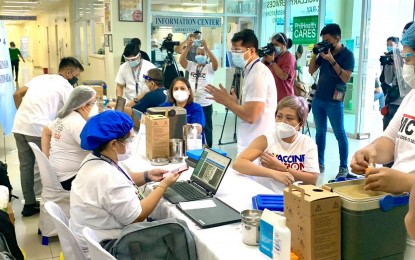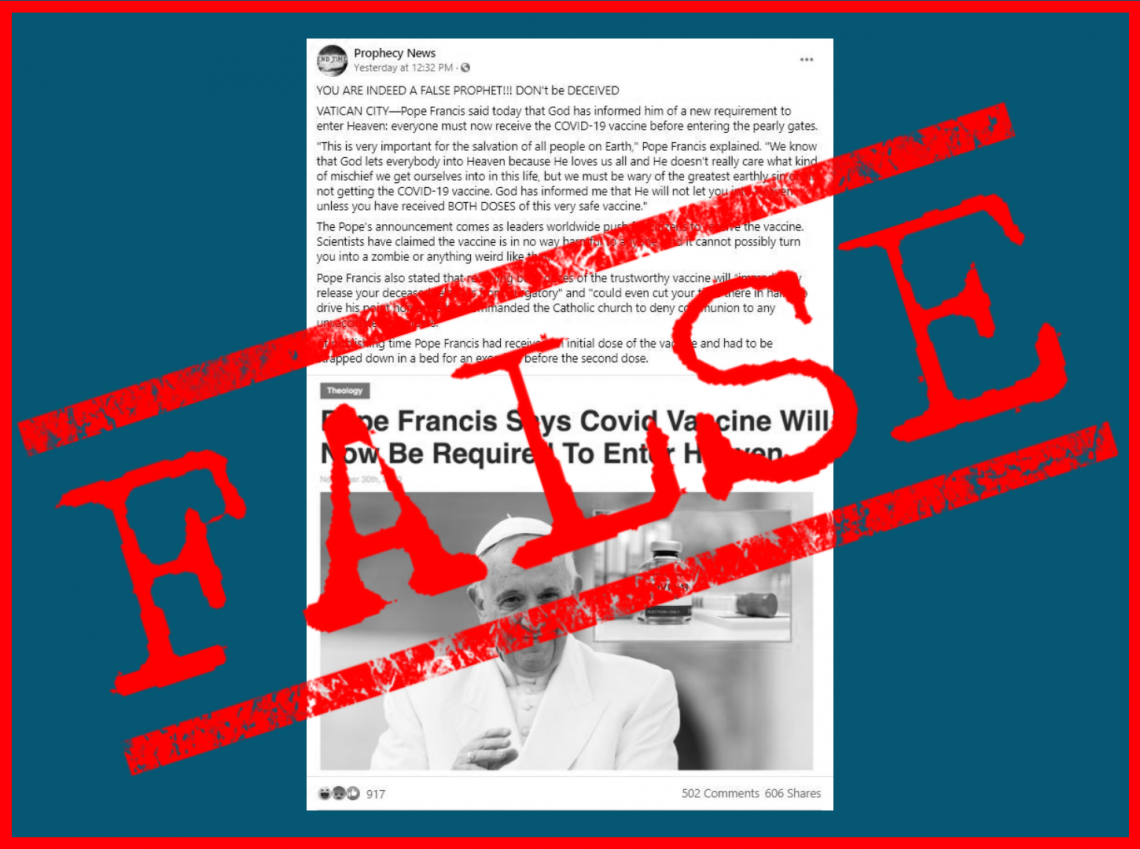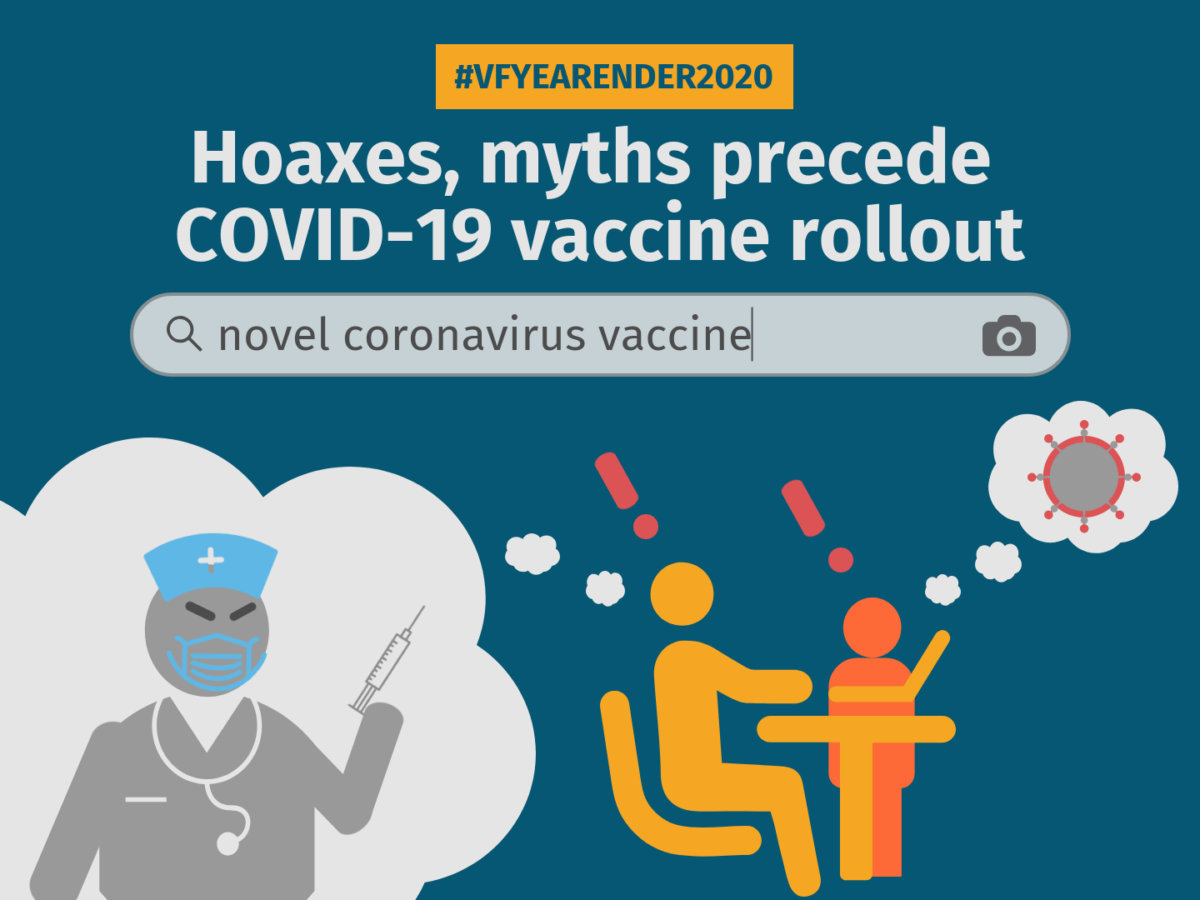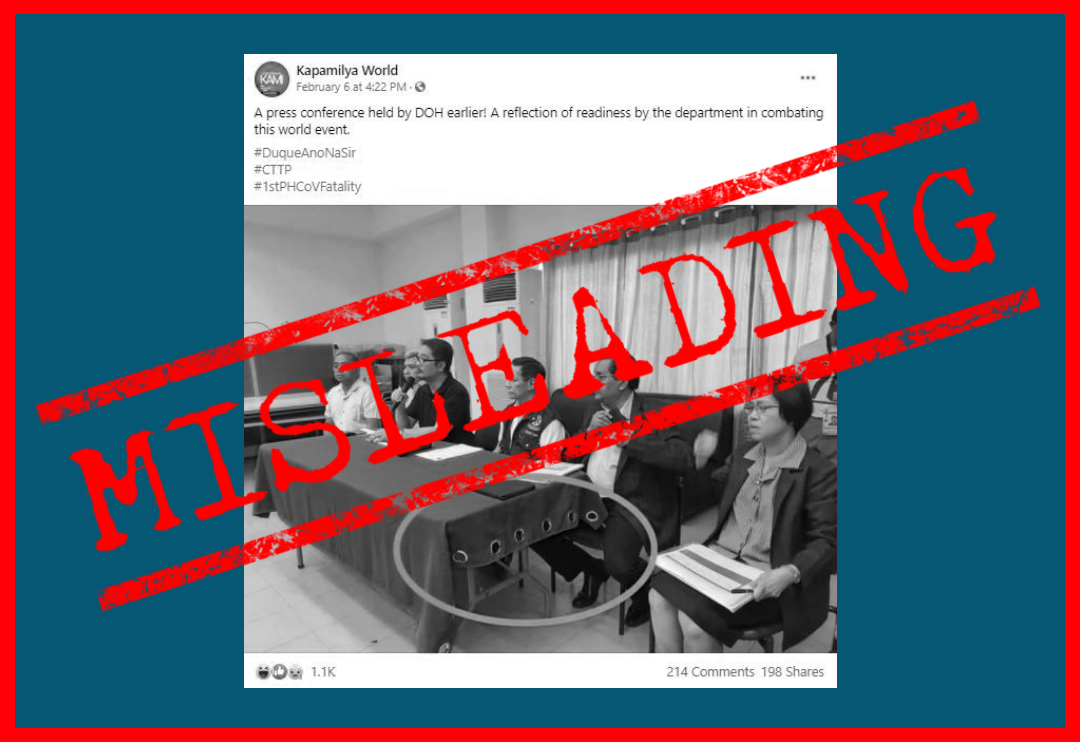It may sound strange that confirmed cases of the coronavirus disease 2019 (COVID-19) began rising again on the same week that the initial shipments of vaccines arrived in Manila and the government started rolling out its inoculation drive.
Last Saturday, the Department of Health (DoH) reported 3,439 new cases, the highest number in a single day since Oct. 12, 2020. When the first shipment of 600,000 doses of Sinovac Biotech’s CoronaVac vaccine from China arrived on Feb. 28, the DoH database showed 2,113 new cases.
The independent OCTA Research Team said the spike in COVID-19 cases in Metro Manila in the past week, averaging 900 infections daily, was 50% higher than what was reported from Feb. 19 to 25 and 119% higher from two weeks prior. It projects an average of 2,500 daily increase in new cases in and outside the region if the spread is not curbed.
The group attributes the upward trend of COVID-19 cases to the SARS-CoV-2 (severe acute respiratory syndrome-coronavirus-2) variants that were first detected in the United Kingdom and South Africa and which are said to be more contagious.
On the other hand, Health Undersecretary Maria Rosario Vergeire said the recent increase in Covid-19 cases could be due to “quarantine fatigue,” meaning the public has become complacent with the gradual easing of restrictions in several localities.
Based on my informal conversations with some local government executives, fewer cases were recorded since late last year until early February because of a slowdown in testing and contact tracing. When it became certain that the initial deliveries of the vaccines were coming, local government units (LGUs) became active again in testing more people.
“More new cases are reported because more people are getting tested. [It’s] as simple as that,” according to a town mayor in Calabarzon (Cavite, Laguna, Batangas, Rizal and Quezon). “Many LGUs stopped testing those who did not report symptoms unless they volunteer to be tested,” he added.
Another local official, who declined to be named, explained that funding constraints and lack of quarantine facilities prevented them from following the norms in contact tracing and testing every person in direct contact with someone who tested positive for COVID-19.
In Quezon City where I live, the barangay (village) offered free swab testing to residents on Feb. 26. We were told that it was part of the city government’s preparation for the vaccination program.
It implies that the confirmed cases in the DoH database do not reflect the accurate situation on the ground. There could be more people out there who have the virus and unknowingly spreading it because they have not been tested.
Many law enforcers and LGUs have also become less strict in implementing the guidelines such as physical distancing even in places such as public markets, shopping malls and community playgrounds.
Physical distancing has also not been strictly observed in public transportation, namely in buses and jeepneys.
Health officials have noticed apparent quarantine fatigue as early as August last year after five months in lockdown. March 15 marks a full year since President Rodrigo Duterte put the entire Luzon island under enhanced community quarantine and later extended the lockdown coverage to other parts of the country.
After one year under lockdown, not only have the people grown tired of staying home, but officials have also become less strict in apprehending those who don’t follow minimum public health protocols.
And while the Covid-19 cases are rising again and the vaccination program is now in place, the government has also opened up the economy even wider by allowing more businesses, such as those engaged in tourism, to operate.
Proposals to resume in-person classes on a limited scale are also under consideration.
But with Covid-19 and its variants still very much active in the country, the government should emphasize that getting the vaccine does not give full security against contracting the virus.
Enforcers should remain strict in implementing the rules and making sure that people follow the minimum health protocols. They should never let their guard down!
The views in this column are those of the author and do not necessarily reflect the views of VERA Files.
This column also appeared in The Manila Times.





